An Expert Guide to PHP Framework Popularity in 2023
In the modern world of web development, PHP is considered one of the strongest cornerstones of server-side scripting. Well, there is definitely a good reason behind such a tendency. In fact, a driving force behind PHP's success lies in the availability and adoption of the PHP framework, which, in turn, provides developers with exclusive efficiency in building next-gen web solutions. Yet, is PHP still relevant in 2023 and beyond? Where can you hire skilled PHP developers at a reasonable price? Over and above that, which PHP framework can be a perfect match for your next market-leading project? In this article, we will answer these and many more relevant questions related to PHP. Read the following paragraphs to find out exclusive insights into the PHP framework landscape, along with the analysis of PHP framework popularity. Ready, set.. Let us crush this exciting topic together!
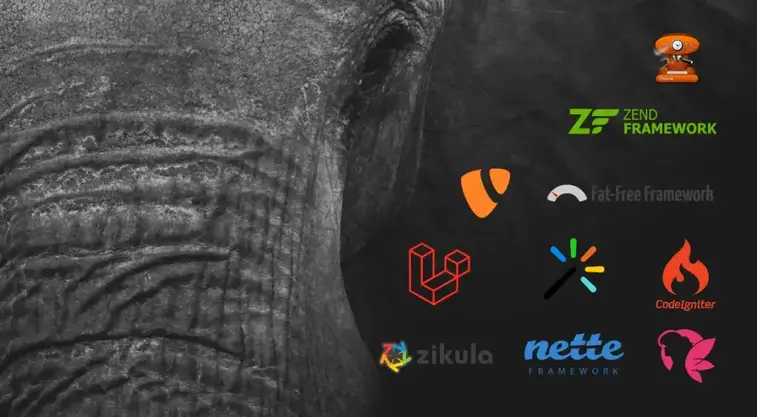
- PHP Framework Overview
- PHP Framework Statistics
- PHP Framework Analysis: Methodology
- PHP Framework Popularity: Top Options to Use in 2023
- Factors Influencing PHP Framework Popularity
- PHP Framework Analysis: Trends and Future Predictions
- Emerging PHP Framework: Exploring New Players
- PHP Framework Comparison: A Closer Look
- PHP Framework Adoption Case Studies
- The Developer's Dilemma: Choosing the Right PHP Framework
- PHP Framework Security: Critical Factors to Consider
- PHP Framework and DevOps: A Symbiotic Relationship
- PHP Framework Licensing and Open-Source Philosophy
- On a Final Note: Navigating the PHP Framework Landscape
PHP Framework Overview
In a nutshell, the PHP framework can be described as an inseparable component of modern web development. By offering structured environments that expedite the coding process, promoting best practices, and enhancing code maintainability, frameworks empower PHP developers to focus on building features rather than reinventing the wheel.
Here is the list of all PHP frameworks:
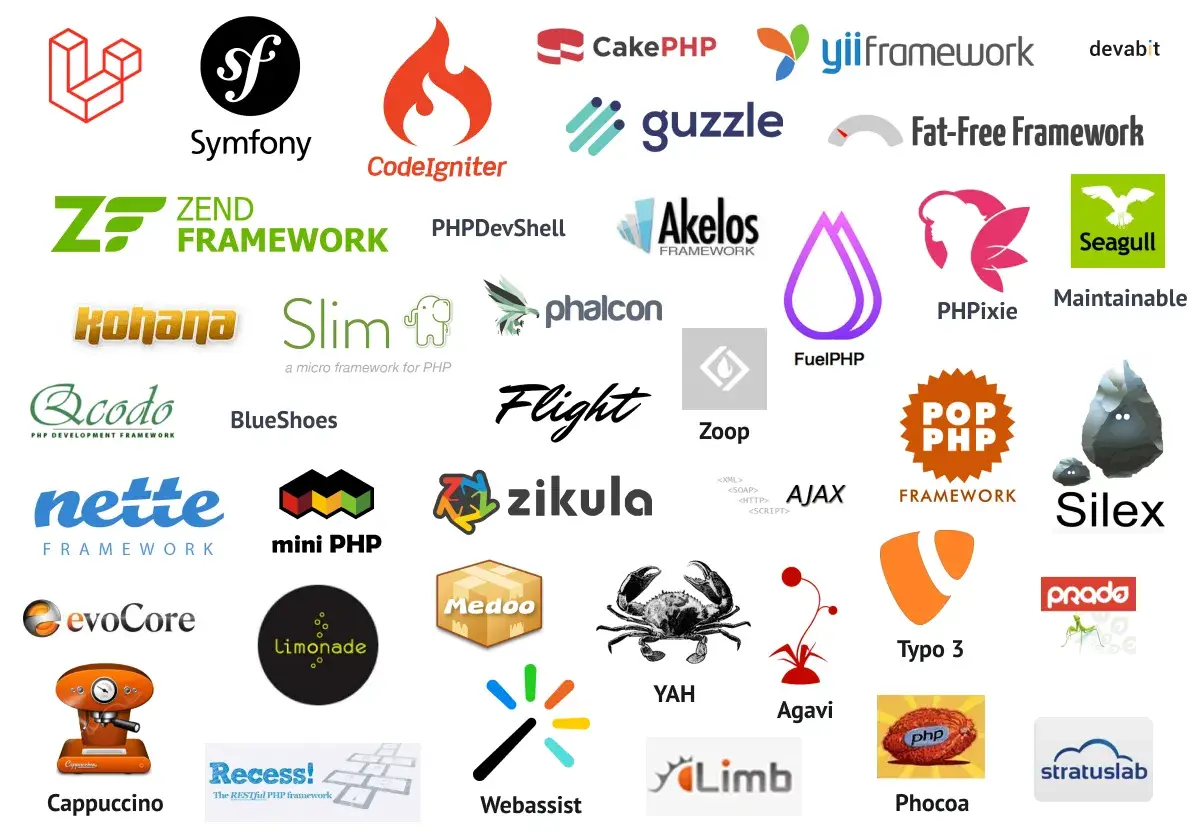
PHP Framework Statistics
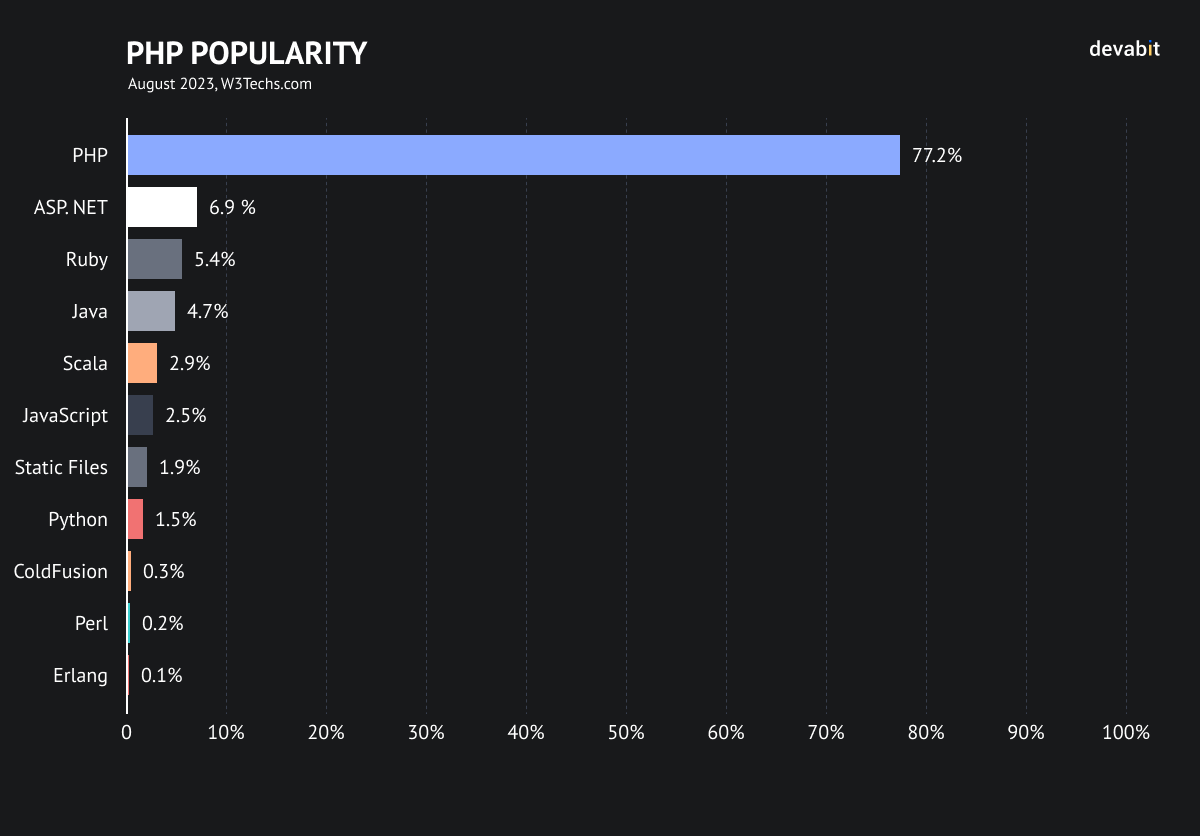
PHP Framework Analysis: Methodology
Gathering insights into the PHP framework popularity demands a comprehensive methodology. This involves collecting data from diverse, reliable sources, including surveys, developer communities, job postings, and GitHub statistics. At the same time, it is essential to note that popularity does not necessarily indicate a framework's quality but showcases its adoption and the support it receives. With this in mind, let us dive into our research.
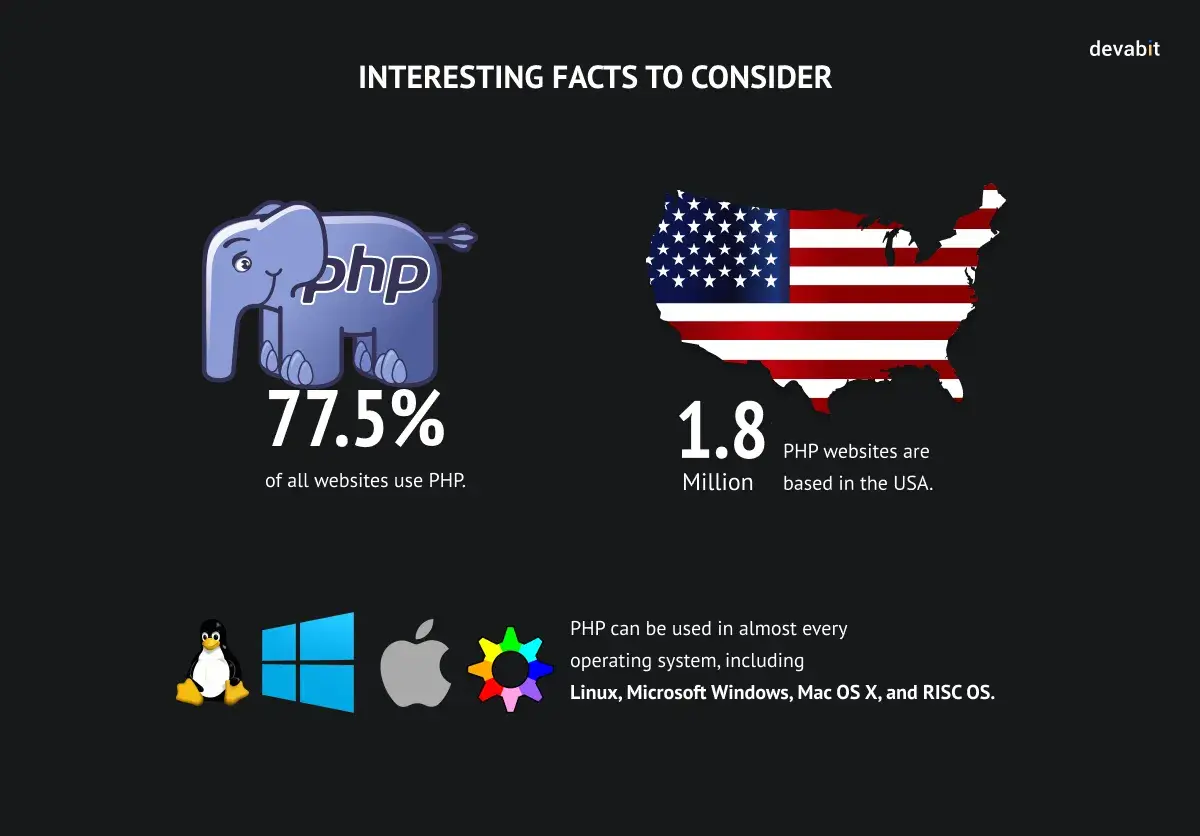
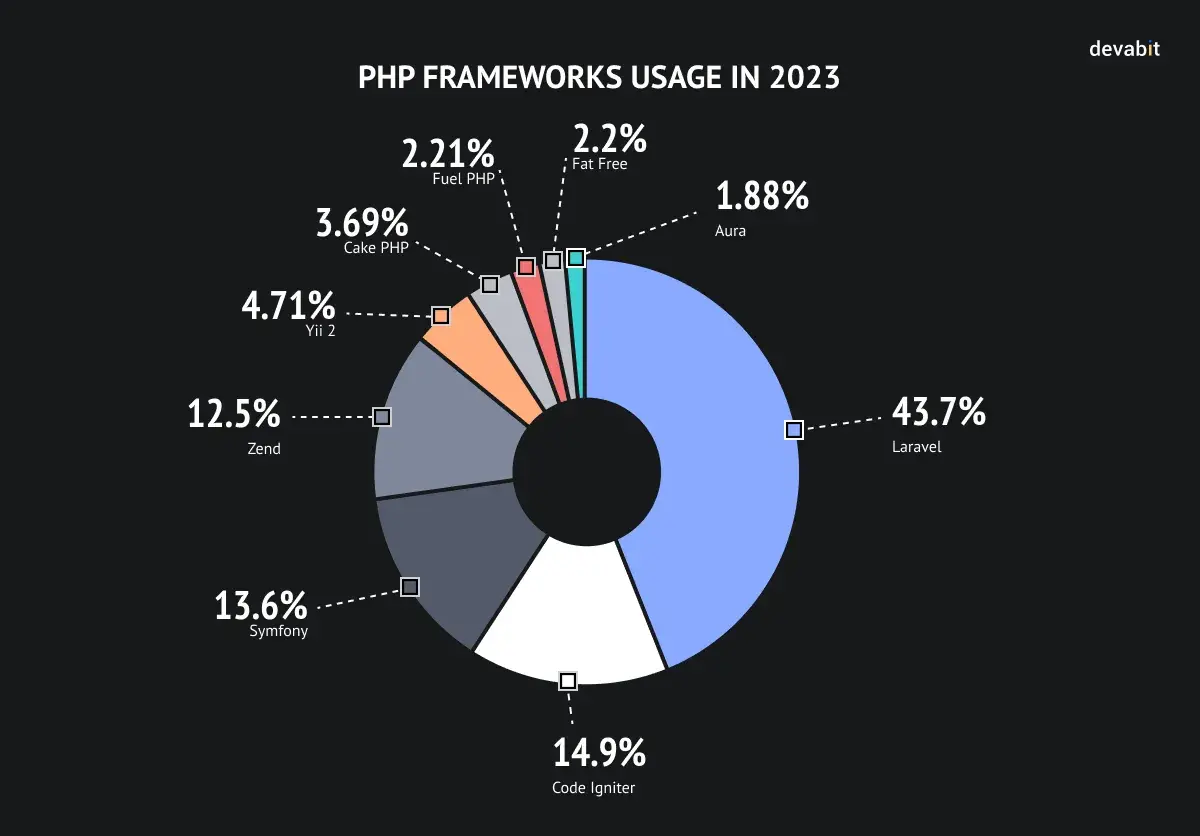
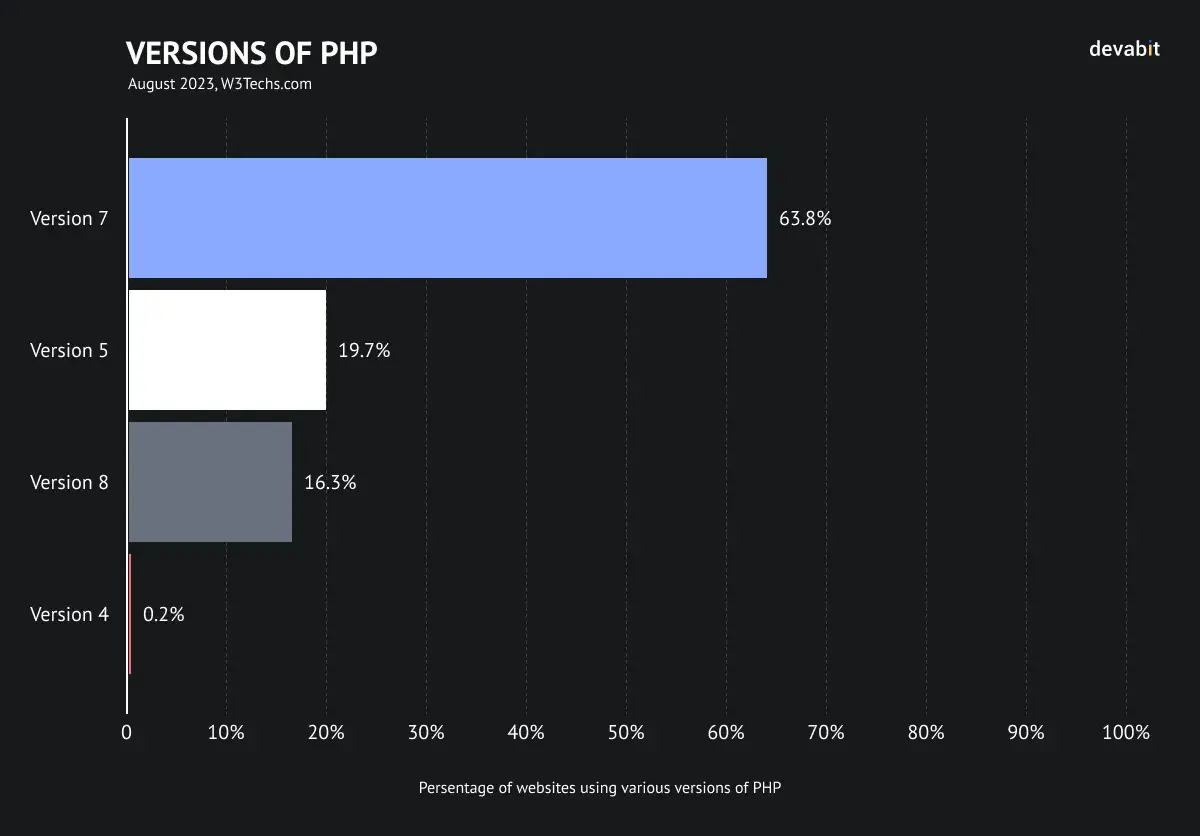
PHP Framework Popularity: Top Options to Use in 2023
1. Laravel
In recent years, Laravel has remained a top-tier PHP framework for several reasons. Needless to say, its clear syntax, extensive documentation, and a robust ecosystem of packages have contributed to its mind-blowing popularity. What is more, recent updates have enhanced its features, reinforcing the excellent reputation of this widely known PHP framework.
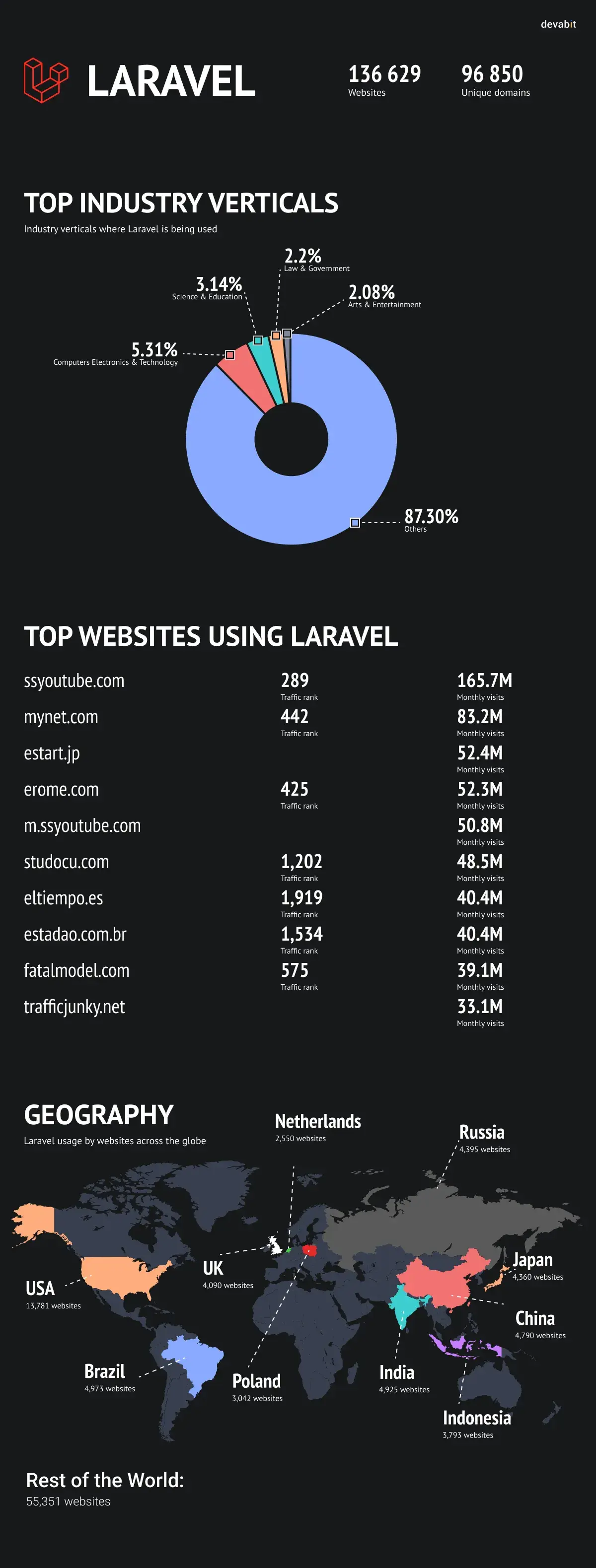
2. Symfony
Whether you want to build a simple solution or a large-scale application, Symfony is a perfect choice for both. Its adaptability is emphasized by components like Flex and API Platform, which broaden the applicability of this PHP framework. Moreover, its emphasis on robustness and scalability makes this PHP framework a top choice for the majority of modern web developers.
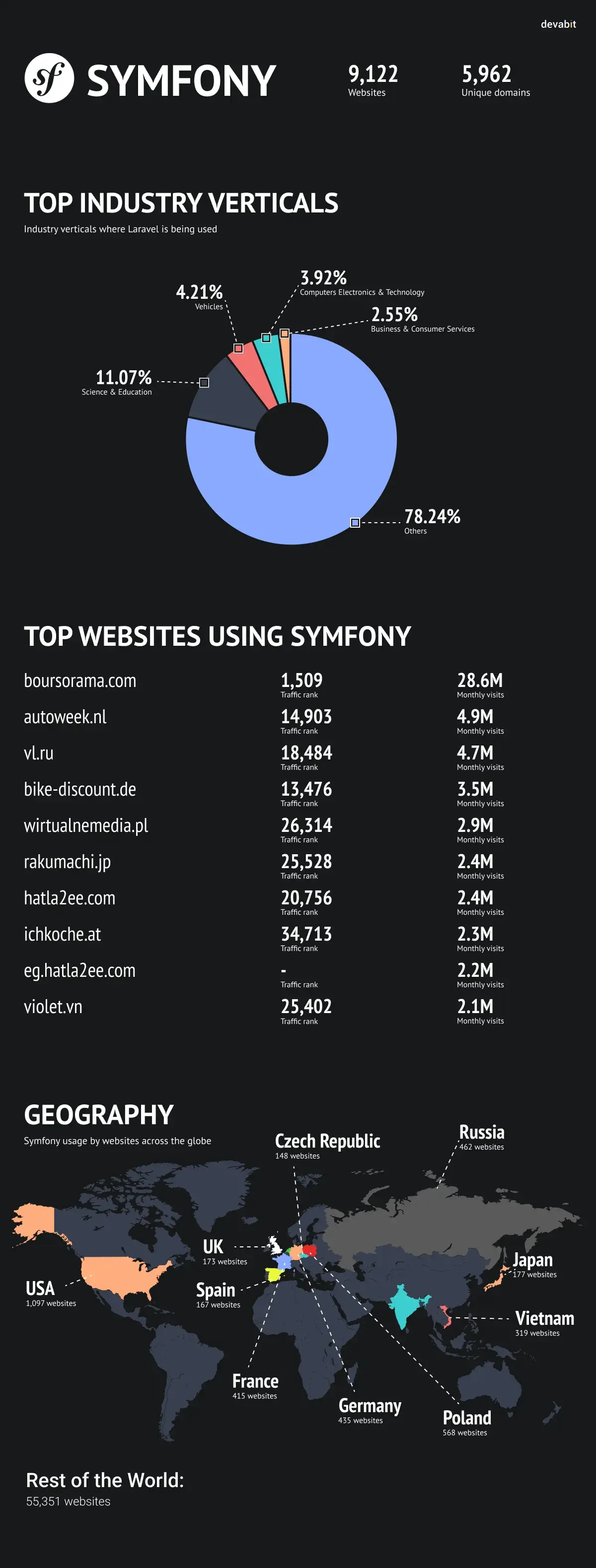
3. Yii
When it comes to Yii's appeal, it is primarily rooted in next-gen performance optimization and security features. Thanks to the quick and efficient adaptation to contemporary development trends, this PHP framework remains a great option across various domains.
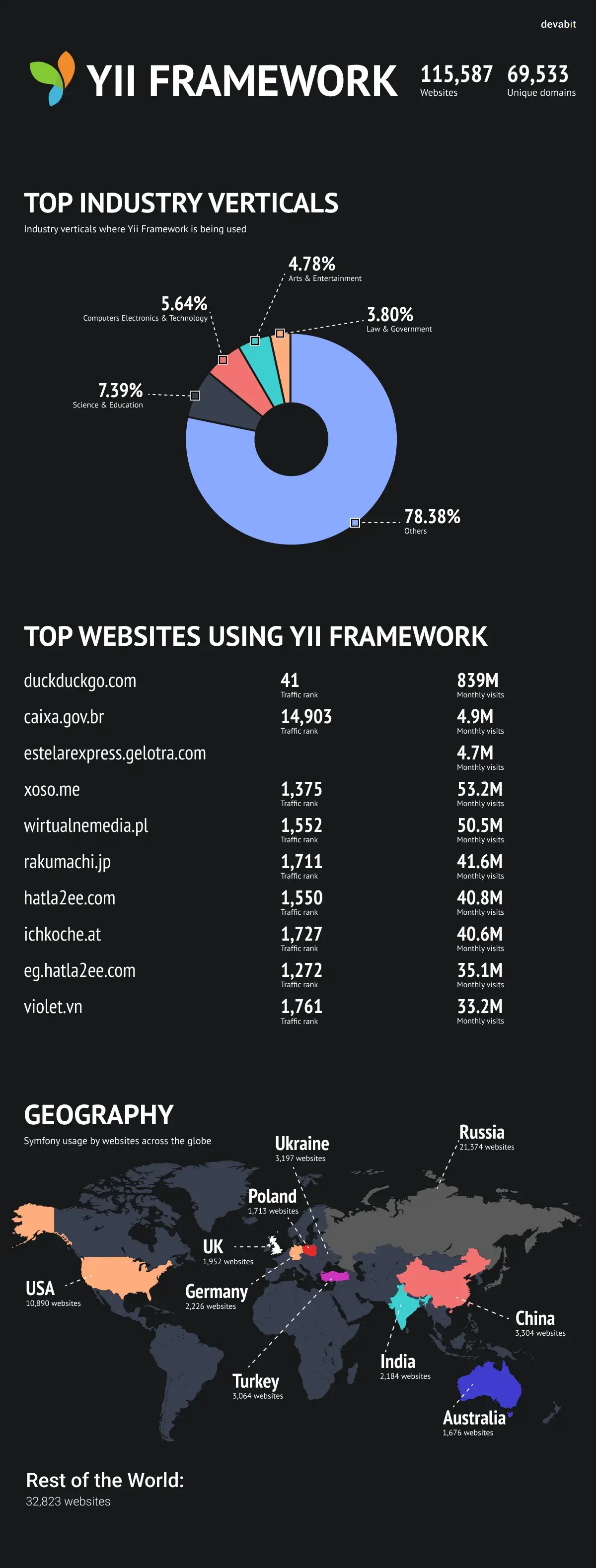
4. CodeIgniter
Looking for simplicity without compromising effectiveness? Look no further since CodeIgniter fits the bill. Its lightweight nature is complemented by recent updates that align this PHP framework with modern web development practices.
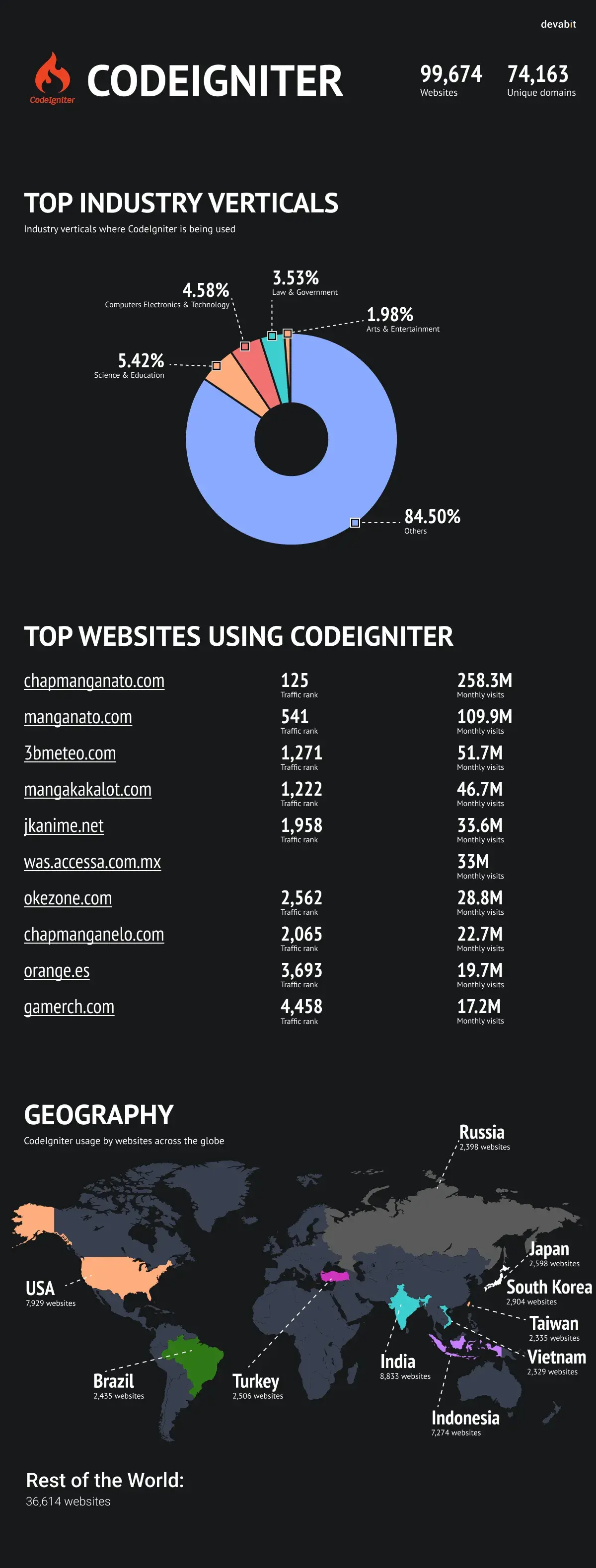
Factors Influencing PHP Framework Popularity
Community & Documentation
There is no doubt that engaged developer communities significantly influence PHP framework popularity. Providing a solid basis for troubleshooting, idea exchange, and collaboration, these communities build a unique wealth of knowledge and resources related to a particular PHP framework. On the other hand, comprehensive documentation is equally pivotal, smoothing the learning curve for inexperienced PHP developers. Ultimately, both community and documentation can either reveal the benefits of a PHP framework or expose its poor features.
Trendy Development Practices
In the universe of web development, practices like RESTful APIs, microservices, and containerization represent all the rage these days. PHP frameworks embracing these modern development approaches are at the forefront of the competition. Summing up, the ability to create applications that align with contemporary trends is undeniably a strong selling point.
Performance & Scalability
In the era of digital transformation, performance and scalability are of paramount importance. With the ability to grow with the expanding business needs of the firm, web solutions gain a substantial advantage in the market, which in turn increases success chances. Hence, PHP framework that offers optimization tools to ensure efficient execution even at scale will always beat behind the competitors.
Ecosystem & Package Availability
A rich ecosystem of packages and extensions is an inseparable element of each high-performing PHP framework. This exclusive arsenal of pre-built solutions minimizes repetitive tasks and accelerates development. Accordingly, the richer ecosystem, the more popular the PHP framework. By way of illustration, Laravel's ecosystem of packages not only helps PHP developers speed up development and add new functionality to their apps but also enhances their overall development workflow.
Industrial Perspective
If the PHP framework is used by industry-leading companies, it undoubtedly stands out among the competitors. This fact underscores the framework's capabilities and reinforces its suitability for enterprise-level applications, making it a top choice for a plethora of organizations from diversified industry verticals.
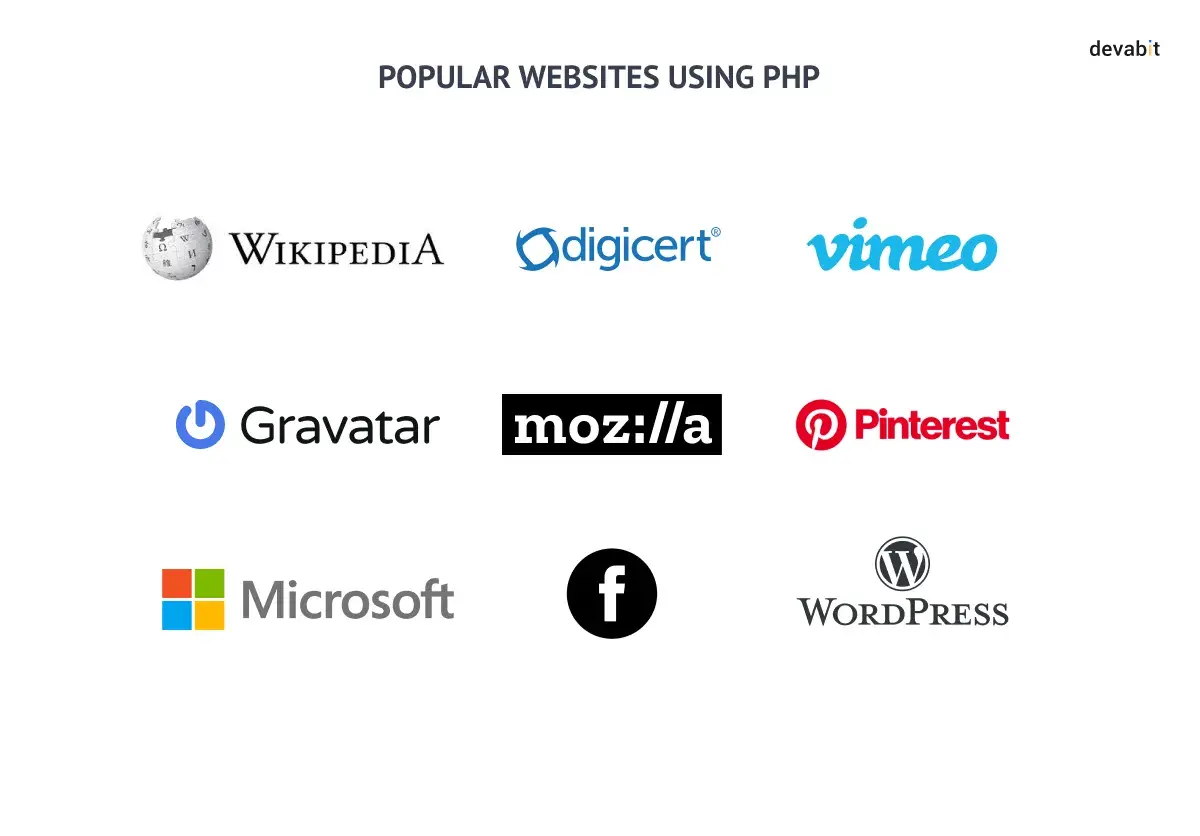
PHP Framework Analysis: Trends and Future Predictions
Integration of Frontend Technologies
Integrating PHP frameworks with contemporary frontend technologies like JavaScript technologies will be a hot trend in 2023 and beyond. In a nutshell, this synergy streamlines the development process and creates more cohesive user experiences.
Serverless & Cloud-Native Development
As serverless architectures and cloud-native development gain more and more popularity, PHP frameworks are rapidly evolving to keep pace with these trendy paradigms. Overall, this market transformation addresses the demand for scalable, cost-effective solutions.
AI & Automation
Nowadays, it is impossible to ignore the huge impact artificial intelligence (AI) has on all areas of human existence, including the realm of PHP development. Thus, the PHP framework incorporating AI-driven features could revolutionize tasks such as code optimization, error detection, and even assisting in architecture decisions.
Ongoing Framework Evolution
The only constant in technology is change, and PHP frameworks are no exception. In light of this tendency, it is clear that PHP frameworks will evolve continuously, aligning with growing developer needs and emerging technological advancements.
Emerging PHP Framework: Exploring New Players
While the established frameworks hold their ground, new players have emerged in the PHP framework landscape. Since newcomers bring fresh perspectives and innovative features to the table, let us find out whether they are worth your attention.
Laminas
Laminas, widely known as Zend Framework, represents a collection of professional and standalone packages. This modular approach enables PHP developers to pick and choose components according to their unique project's needs. Laminas' recent rebranding and emphasis on interoperability have sparked interest within the developer community.
Phalcon
Phalcon stands out as a PHP framework written in C and offered as a C-extension. Such a robust technology foundation contributes to its exceptional performance. Despite its relatively smaller community, Phalcon's speed and low overhead attract PHP developers who prioritize efficiency in high-performing applications.
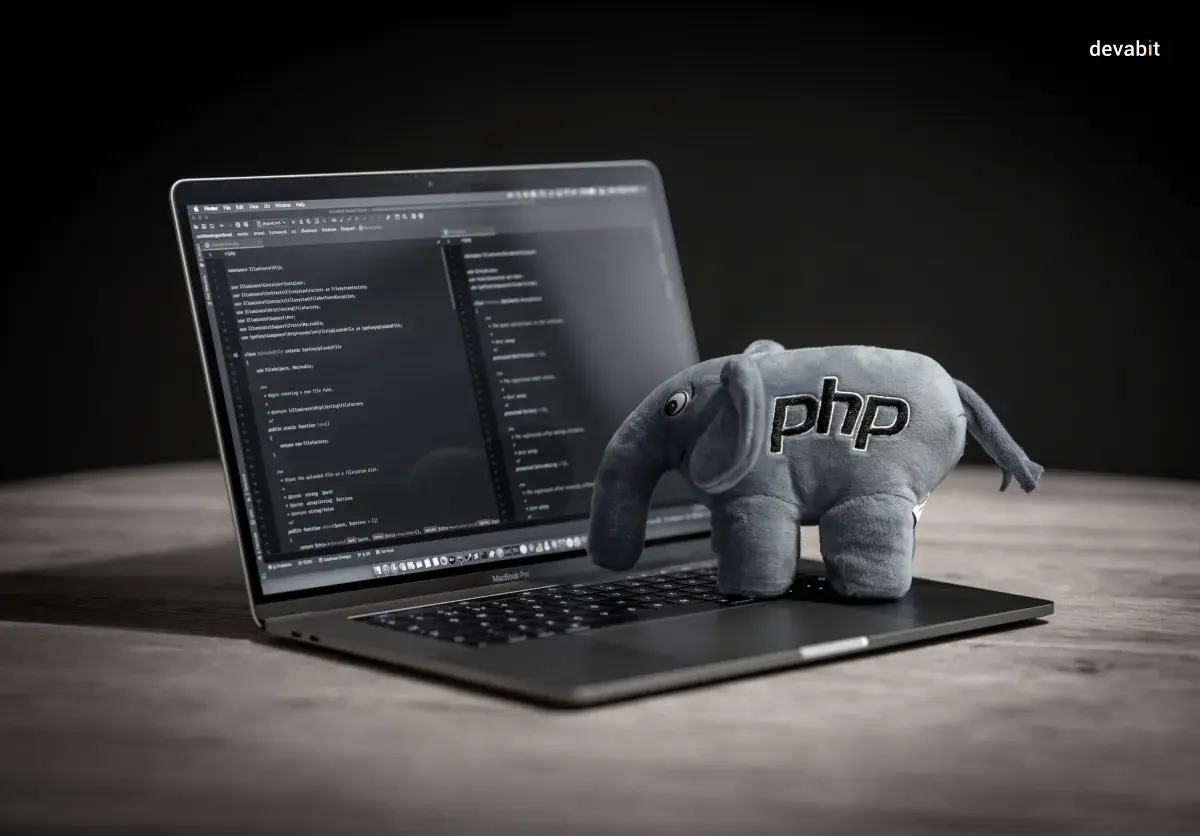
PHP Framework Comparison: A Closer Look
Understanding the true nature of popular PHP frameworks requires a more in-depth comparison of their key features and performance. So, let us jump right into the battle.
Laravel vs. Symfony
Laravel and Symfony, which have been getting much attention in recent years, serve different developer preferences. On the one hand, Laravel's simplicity and elegant syntax make it a good choice for startups and small teams. On the other hand, Symfony's robust architecture and flexibility make it a perfect option for large applications with complex requirements. In any case, you should consider factors such as project scope, learning curve, and expansion before making a final choice concerning the PHP framework you prefer.
Yii vs. CodeIgniter
While Yii and CodeIgniter share similar weaknesses, they have distinct strengths. Yii is ideal for applications with stringent security requirements due to its excellent performance and security features. On the contrary, the lightweight nature of CodeIgniter suits PHP developers looking for a fast development cycle and an easy learning curve. After all, the choice depends on whether you prioritize performance or rapid prototyping.
PHP Framework Adoption Case Studies
Examining real-world use cases of PHP frameworks sheds light on their suitability and adaptability. Let us take a look at industry leaders' case studies.
How Laravel Dominates the eCommerce Industry: Shopify
Shopify, a well-known e-commerce giant, relies on Laravel to power parts of its platform. Laravel's flexible architecture aligns with Shopify's complex needs, enabling the company to scale its services seamlessly. This partnership highlights Laravel's capability to support large-scale, customer-centric apps.
Symfony's Enterprise Fit: Drupal
Drupal, a famous content management system (CMS), uses Symfony components to provide a robust foundation for its modules. Symfony's decoupled architecture complements Drupal's extensibility, representing its viability in the enterprise domain. As a result, such an integration emphasizes the value of this PHP framework in constructing adaptable and customizable systems.
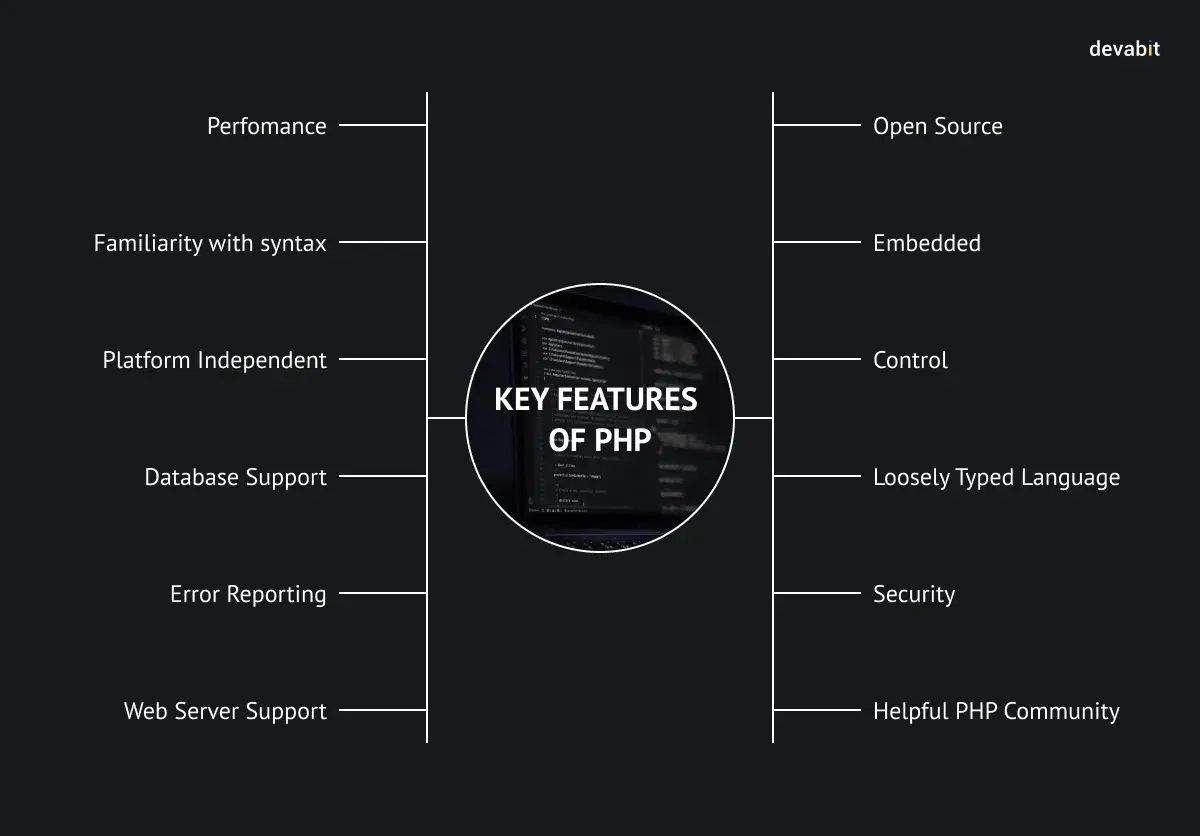
The Developer's Dilemma: Choosing the Right PHP Framework
With a plethora of options, choosing the proper PHP framework can be a challenging task. To navigate this decision-making process, developers should consider several factors.
Project Scope & Complexity
The scope and complexity of your project are climactic in the PHP framework selection process. For small-scale projects, lightweight frameworks like CodeIgniter may be suitable, while larger and more complex applications may demand the powerful capabilities of Symfony or Laravel.
Team Proficiency
The skill set of your development team often becomes a decisive factor. Going for a framework that aligns with your team's expertise will improve the overall development process and enhance code quality.
Future Scalability
It is extremely essential to anticipate the growth of your web solutions. In this regard, the PHP framework that offers scalability and performance optimization tools will prevent bottlenecks as your user base expands.
Ecosystem & Community Support
As we have already sorted out, the availability of plugins, extensions, and a thriving community can significantly impact your development journey. Active communities ensure prompt issue resolution and a wealth of resources.
The Road Ahead: Evolution and Adaptation
As we peer into the future, PHP framework evolution is inevitable. Developers can expect several trends that will shape the trajectory of these frameworks.
Enhanced Real-Time Features
The demand for real-time interactivity will drive frameworks to incorporate features like WebSockets and event-driven architecture. This evolution will cater to applications requiring seamless user engagement.
Progressive Web Applications (PWAs)
Frameworks will likely prioritize features that facilitate the development of PWAs. The ability to craft applications that offer native app-like experiences across devices will become a distinguishing factor.
Cross-Framework Collaboration
While competition is fierce, cross-framework collaboration could be a future trend. Shared components and interoperability might emerge as PHP developers seek to harness the strengths of multiple frameworks within a single application.
PHP Framework Security: Critical Factors to Consider
In the age of cyber threats, security is non-negotiable. PHP frameworks play a vital role in protecting applications against digital vulnerabilities and attacks.
Laravel's Security Features
From built-in protection against SQL injection to robust authentication mechanisms, Laravel prioritizes application security. Its security-related packages expand the capabilities of this PHP framework, making it a favored option for applications with stringent security requirements.
Symfony's Security Model
Speaking of Symfony's security component, it is a robust system that provides a wide range of authentication and authorization options. Its firewall system allows developers to define access controls precisely. Additionally, Symfony's regular security updates ensure that applications remain resilient to emerging threats.

PHP Framework and DevOps: A Symbiotic Relationship
The rise of DevOps practices has transformed the web development and deployment ecosystem. Yet, PHP frameworks are no exception to this sharp transformation.
Continuous Integration & Continuous Deployment (CI/CD)
Notably, PHP frameworks that seamlessly integrate with CI/CD pipelines streamline the deployment process. Automated testing, code review, and deployment pipelines ensure code quality and application consistency.
Containerization & Orchestration
With a PHP framework that facilitates containerization and orchestration, PHP developers can create consistent and scalable development environments. In this way, Docker, Kubernetes, and other tools can be integrated into the development workflow.
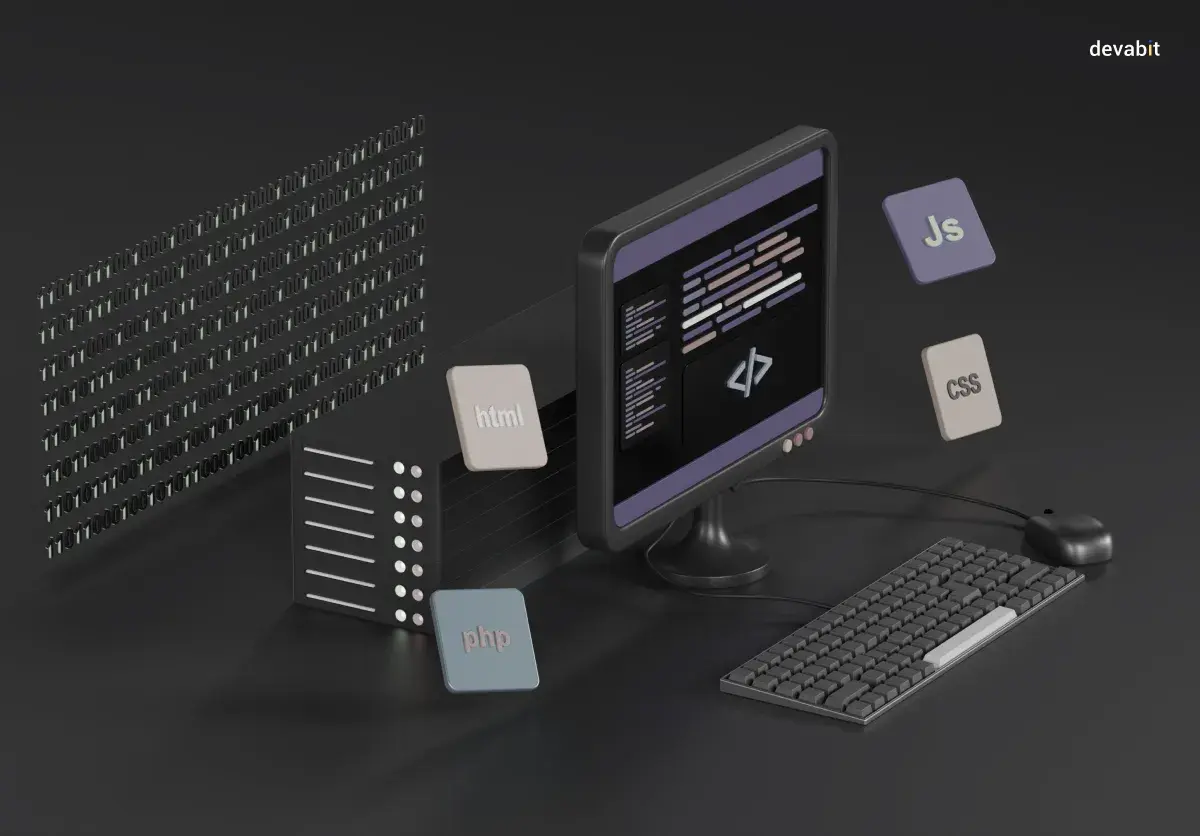
PHP Framework Licensing and Open-Source Philosophy
In the 21st-century world, open-source principles drive the development of PHP frameworks, ensuring transparency, community collaboration, and innovation.
Open-Source Contributions
Major PHP frameworks encourage community contributions through platforms like GitHub. Developers worldwide can contribute code, report issues, and suggest improvements, cultivating a collaborative ecosystem.
Licensing Models
PHP frameworks usually adopt permissive open-source licenses like MIT or Apache. These licenses allow PHP developers to use, modify, and distribute the PHP framework without imposing restrictive conditions.

Nowadays, PHP frameworks are an inseparable component for building dynamic and robust web solutions that impress users. The wide variety of available options allows developers to choose frameworks that align with their expertise and project requirements. Think at least of Laravel's elegance, Symfony's versatility, Yii's performance, and CodeIgniter's simplicity. All of these PHP frameworks apply to different preferences of developers so that everyone can choose what suits them best.
The modern technology landscape evolves, so PHP framework landscape will also adapt at a rapid pace. The integration of frontend technologies, serverless architectures, the influence of AI, and the ongoing evolution of PHP framework landscape will shape the future of web development. The synergy between PHP, its frameworks, and the collective expertise of developers will play the leading role in creating innovative digital experiences for users worldwide.
Looking for a reliable PHP development partner? Want to hire skilled PHP developers? At devabit, we are always ready to help. Just drop us a line below and let us build your next market-leading solution together.
Recent Publications
Don't miss out! Click here to stay in touch.
Discover More

Relevant Articles View all categories
View all categories CONNECT WITH US WE’RE READY
TO TALK OPPORTUNITIES
THANK YOU! WE RECEIVED YOUR MESSAGE.
Sorry
something went wrong



